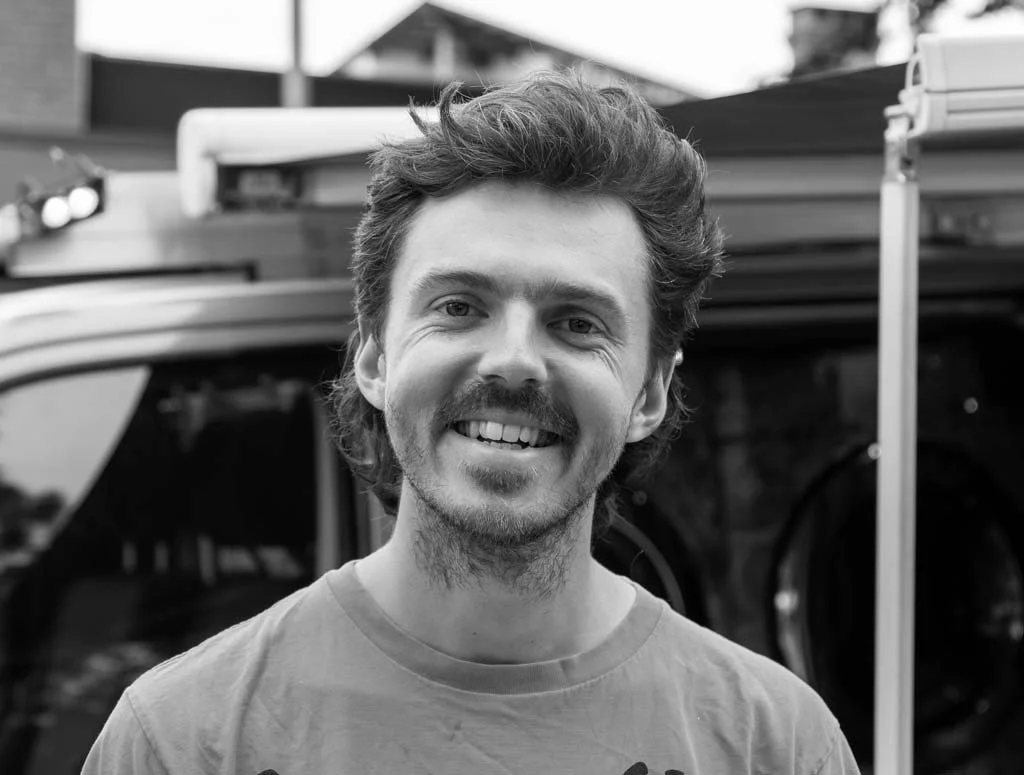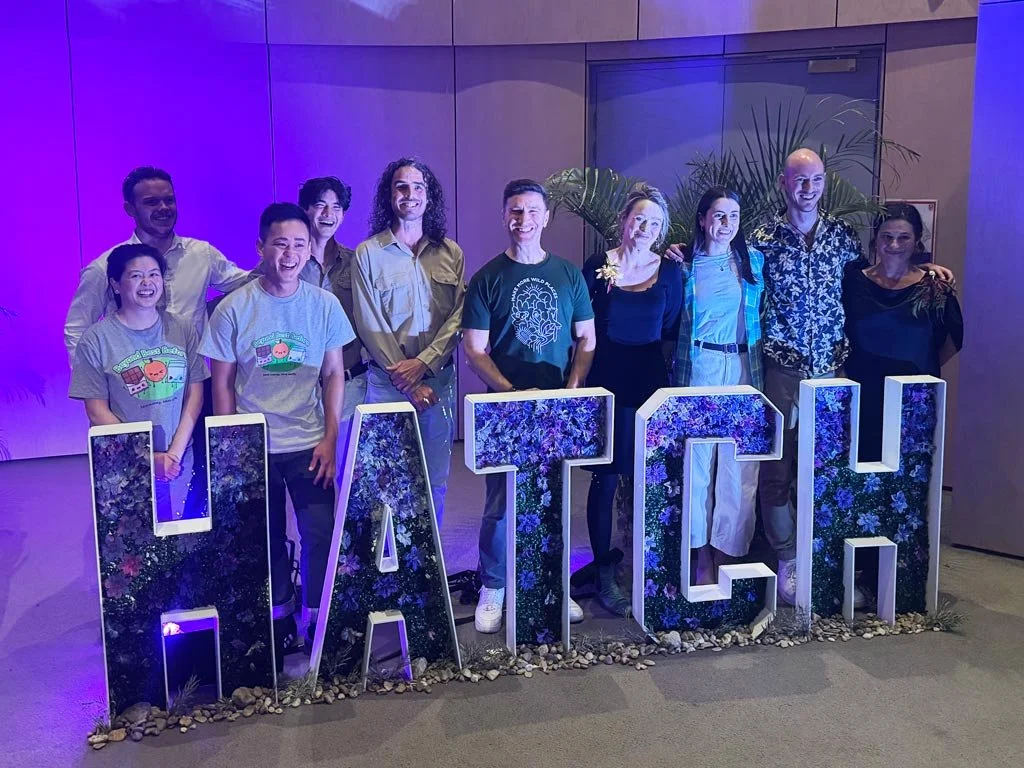Dean Foley On Indigenous Entrepreneurship, Startups & Opportunities To Create Impact
Dean Foley served five years in the Royal Australian Air Force before founding Barayamal – Australia’s Indigenous Business Accelerator Program.
He is a proud Kamilaroi Man who grew up within the Aboriginal community in Gunnedah, NSW and currently studies a Master of Business degree at the Queensland University of Technology. Dean is an action oriented social entrepreneur and marketing professional.
Dean provides insights into the challenges of Indigenous entrepreneurship, shares his experience in creating startup events & hackathons & gives tips on taking ideas to action.
Highlights from the interview (listen to the podcast for full details)
[Tom Allen] - To start things off could you please share a bit about your background and what led you down the path of social enterprise and running hackathons? [1:47]
[Dean Foley] - I was in the Air Force for 5 years. I read a book on entrepreneurship and thought about doing it myself. So with no experience or connections, I left the Air Force and came to Brisbane to get into Business. During that time, because I'm Aboriginal I found out about a few organisations that are supposed to help Indigenous people. But I didn't find their help that great.
I was invited along to a startup weekend by Bernie Woodcroft at iLab and at the end of the event I thought it would be a great opportunity to have an Indigenous Startup Weekend to promote Indigenous entrepreneurship. I went on to run that national event and the feedback I got from the Indigenous entrepreneurs there confirmed my own thoughts about the current support mechanisms supposedly helping Indigenous entrepreneurs - they didn't really find it that helpful.
From there I went on to run a prototype mini startup accelerator program with Slingshot. [Dean explains more about this event.] From there Barayamal has been growing. We recently ran a national charity hackathon and an entrepreneurship and coding workshop for 20 Indigenous youth in Brisbane.
Tell us more about those Indigenous entrepreneurship programs, how did they unfold? [3:37]
Capalaba State College were really helpful and brought along 20 Indigenous students to Fishburners at The Capital where I ran the workshop. [Dean explains more about the workshop.]
There's a lot of potential in youth. If you give them the right tools, the skills and right support they can go on and do things by themselves. They don't really need these massive government organisations to help them.
The Give Backathon was very interesting too. I'd never been to a hackathon before but had obviously run the startup weekend last year. I had a chat to a few people who had been to a hackathon and reached out to a few Indigenous charities. [Dean talks in detail about the charities involved.]
Once we had the charities on board, pulling the event together was much easier. We also managed to get some corporates on board like Microsoft, KPMG and Github. [Dean explains how he didn't expect Github to get on board and how he thought that was quite amazing.]
In Australia you sometimes get a bit of pushback.
I was speaking to the CSR Head of a big Telco company and she said, 'it's good what you're doing and that you're helping minorities.' That was pretty bad for me because it's a minority but they're First Nations people so try to have a bit more respect. I didn't say that to her though.
What have you learnt from running the startup weekend and what do believe are the fundamental ingredients to make a hackathon successful? [7:33]
For me it's all about giving value to the people involved.
[Dean talks about what value the different stakeholders get as well as some of the pushback he came up against.]
The participants that showed up [to the hackathon] were amazing. They all wanted to give back. That was demonstrated at the end when a lot of the prize winners gave the prizes back to the Indigenous charity or community. [Dean talks about the different prizes and how he found people giving back humbling.]
What are some of the biggest challenges you’ve had to face until now and how did you navigate them? [9:43]
The biggest challenge now is trying to get funding.
I'd recommend anyone getting into social entrepreneurship to try and self fund it.
Try and get into business and get your money there. It's challenging sometimes especially in the early stages to get up your credibility and build a profile where corporates are interested in putting money into it as part of their corporate social responsibility to increase it's impact.
Another challenge is that everybody talks about collaboration and working together but at the end of the day everybody has their own self interests.
It's a challenge when you're trying to do something and do it right, people aren't really supportive at times. One organisation has a group of Indigenous leaders and one of the proposals was to put together an Indigenous accelerator program. A few of the people mentioned that 'Dean's already doing this, why are we doing this?' The only thing I can think of is that this government organisation I guess can't really influence or control what I'm doing so they want to try and do it themselves. But I get zero funding for all this. When you look at what we've done compared to what some of these government organisations have done with a tonne of funding, it's pretty much a no-brainer that we can deliver the best impact.
What advice would you give an aspiring social entrepreneur who has an idea but is unsure of what steps to take to move it forward? [11:40]
Try and find people you can collaborate with and work together. That's more powerful than trying to do everything yourself, even though that won't always work. Find like-minded people you can work with.
Just go out there, do it and find like-minded people to work with.
Which countries do you believe are really leading the charge when it comes to social innovation? What are they doing that you think Australia could adopt? [12:22]
I watched a TEDx talk recently about the Bhutan Prime Minister. He was talking about how they're carbon neutral and have a whole bunch of social policies based around their citizen’s happiness.
Western country values are very focussed on Gross Domestic Product (GDP) and where is that getting us? More people are getting unhappy and depressed so I think there needs to be a massive shift around how we define success.
The economist who invented GDP did say it would have a negative effect on people so I think we need to go back to the drawing board and think about how we view success.
Are there any particular business, design or marketing tools which have proven to be invaluable in the development and daily running of your different projects? [13:33]
Asana, a project management tool works really well for me. I'm a bit ADHD and off focus sometimes, so something as simple as that keeps me on track and focussed.
If you lose track, time flies by and you may not secure that funding or make that impact that you wanted to.
I use Mailchimp too because it's good to communicate with people and create a drip campaign to promote the events we're doing.
The Lean Startup Methodology of build, measure, learn, has been invaluable too especially when you've got a small budget you really need to apply that methodology to get traction and get where you need to be to expand.
What other inspiring projects or initiatives have you come across recently which are creating positive social change? [14:47]
There's been a lot and you guys are doing awesome work in promoting social impact and innovation.
The Catalysr accelerator program for refugees and migrants has been really cool. I keep track of all the work they're doing to help people who come here trying to escape war-torn countries and get a hand up and not a hand out to gain that experience in entrepreneurship and what to do to start their own business and lifestyle in Australia.
Coming back to the Indigenous perspective, what do you believe the government or private sector could be doing to close the gap and create some great change in Australia? [15:45]
I think there's a lot of good will within the Australian community to help Indigenous people but I feel sometimes that everything comes from the top down. That's been proven that it hasn't had the best impact in the Indigenous community.
The Prime Minister recently released his Indigenous report and from the seven sectors he was hoping to close the gap, he was only on target to reach one.
What hasn't worked in the past won't work in the future.
We've seen that a lot of this government funding is going to the wrong organisations that aren't having a positive long term impact in the community.
What I'd like to see is the government having more trust within the community to solve their own problems and giving it [funding] to Indigenous organisations and leaders that can deliver positive impact.
[Dean talks about a recent example between a government organisation that gets a lot of funding for Indigenous entrepreneurs that partnered with an accelerator program which would have cost a lot of money. He talks about how he believes they overlooked Barayamal and how Barayamal could make a bigger impact.]
To finish off, what are the top 3 books you’d recommend to our listeners? [17:48]
[Dean talks in detail about the books listed below. He says that his personal journey started by reading Rich Dad, Poor Dad.]
Resources, initiatives and people mentioned on the podcast
Recommended books
The Four Steps to the Epiphany by Steve Blank
Getting Everything You Can Out of All You've Got by Jay Abraham
Rich Dad Poor Dad by Robert Kiyosaki







